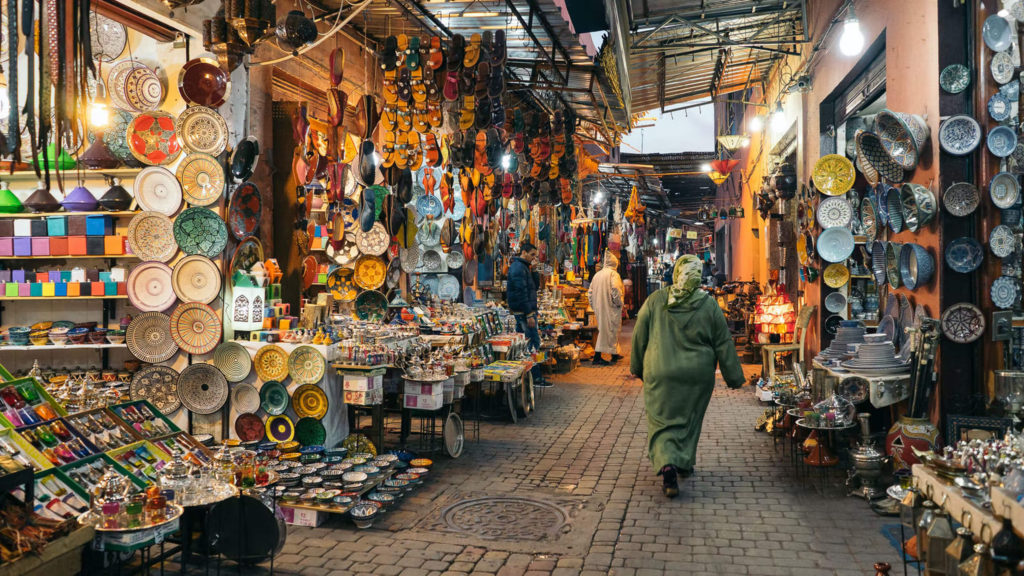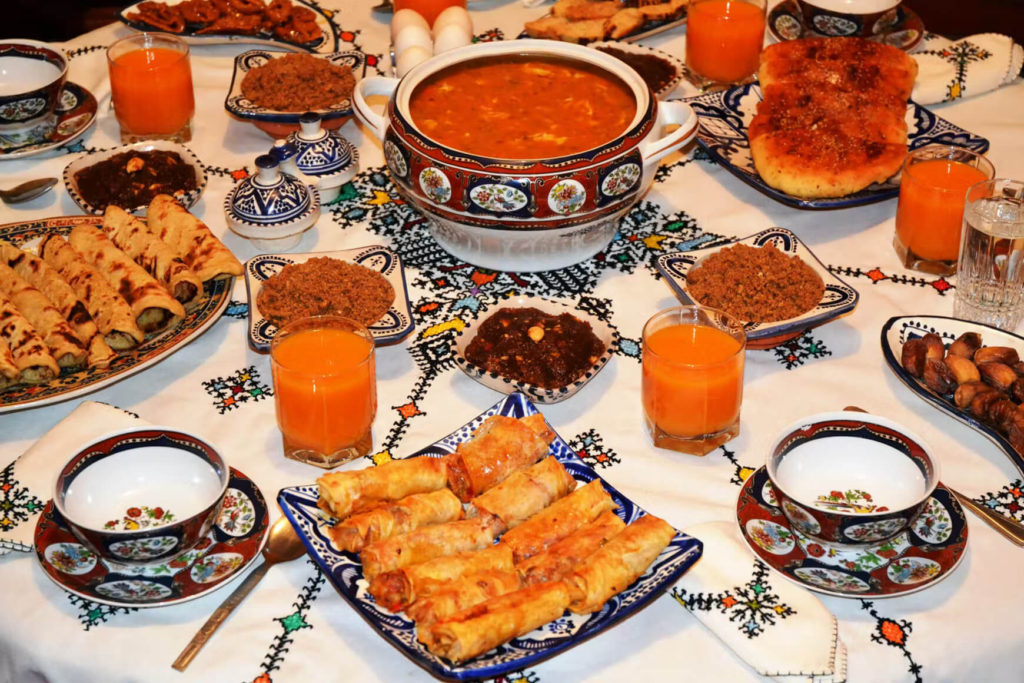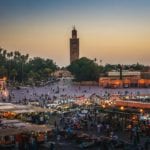Perhaps you’re just beginning to make travel plans and are wondering whether or not it’s a good idea to visit Morocco during this time.
While such concerns are understandable, the good news is that tourism in Morocco is alive and well during Ramadan, as is famous Moroccan hospitality. That means you’re likely to have as fantastic an experience as you would when visiting Morocco at another time of the year.
Not only that, but you’ll also be treated to unique cultural experiences and spiritual insights that simply don’t present themselves outside of the month-long window of Ramadan, and you’ll find that hotels, attractions, and activities are much less crowded.
Here then is what to expect if traveling to Morocco in Ramadan.

What Is Morocco Like in Ramadan?
During Ramadan in Morocco, the days tend to start off on a sleepy note, particularly outside of city centers. When Ramadan falls in the summer months, as it did in recent years, non-urban streets might remain free of activity until noon or later.
Small retail shops and neighborhood grocery stores tend to open later, close at sunset for an hour or two, and then reopen in the evening.
Government offices and service providers will reduce the length of the working day, while those involved with construction or heavy labor might start quite early in the morning and finish by mid-afternoon to avoid the intense afternoon heat.
Local eateries won’t be open during the day, sports activities might be relegated to evenings, and schools also start later in the morning and finish earlier in the afternoon.
Moroccan Food Traditions in Ramadan
Despite the fasting that’s going on, food preparation increases as families prepare for iftar (or ftour), the meal at sunset when they break their fast.
Many Moroccan families follow a tradition of breaking their fast with a variety of sweet and savory finger foods and breakfast foods along with dates, harira soup, eggs, and sweets.
Some of the favored foods are time-consuming to prepare, so many women find themselves in the kitchen more than normal.

Additional cooking might be done after breaking the fast, as many families gather over a full dinner late at night or in the early morning hours.
Bakery items and traditional cookies and sweets such as almond briouats, chebakia, and sellou are in high demand at this time, and some families prepare for Ramadan a full month in advance to stock their freezers and pantries with homemade items.
How Does Ramadan Affect Visitors to Morocco?
Unless your primary reason for visiting Morocco is to explore Moroccan cuisine in-depth, Ramadan should not be disruptive to your travel experience and should be as enjoyable as any other time of the year for your trip.
You should find that most tourism activities, businesses, and local sites and attractions are operational in Ramadan, although perhaps on a modified schedule.
For example, if you’re visiting Casablanca you’ll find that tours are running at the Hassan II Mosque and that tour guides and drivers are available for tours and excursions.
Guides and drivers will assume that you’ll want to eat and drink, so there’s no reason to feel shy about doing so in front of them or in the tour vehicle.
In other parts of Morocco, you’ll have no trouble to doing activities such as mountain trekking, desert camel rides, and 4×4 excursions.
Your guides may be fasting, but no one is expecting you to be. That means you can eat and drink as normal, and if daytime meals are typically provided as part of your experience, you’ll still be served and hosted in style.
Are Moroccan Restaurants Open During Ramadan?
Travelers to Morocco during Ramadan will find, however, that eateries and restaurants which cater primarily to a local clientele will be closed during daytime hours in Ramadan.
In major cities and in popular tourist destinations, this shouldn’t pose too much of a problem as there will still be plenty of options, including international chain restaurants, hotel restaurants, and local eateries that thrive on tourists’ business.
Things will be a little different in small towns and villages, particularly ones that don’t have a lot of travelers pass through even outside of Ramadan.
At such destinations, you may need to stick to eating at your hotel during daytime hours or visit a local grocery store or convenience shop to select snacks and beverages to pack and take along on your excursions.
About Eating in Public in Morocco in Ramadan
You may have heard that it’s illegal in some Muslim countries to eat in public in Ramadan. Rest assured, tourists to Morocco do not need to worry about this.
Moroccans would not want visitors to their country to feel like they should go thirsty or hungry out of fear of such a law, or out of concern that eating or drinking in front of a fasting Muslim is tantamount to temptation or torture.
Keep in mind that Muslims themselves are exempt from fasting while traveling and that all around the world fasting Muslims are working with food to serve children or prepare meals to break the fast later in the day.
That said, if you do need to eat or drink while out and about or enjoying the sights, it helps to use a little discretion and courtesy.
As example, you might take a swig of water when you need to, but otherwise try to be inconspicuous and keep the bottle tucked away in your purse or backpack.
Or, you can try to limit your snacking and drinking to uncrowded places or within the confines of a tour vehicle or restaurant that’s open for business.
Advantages of traveling to Morocco in Ramadan
- Ramadan tends to be an off-season for tourists, so most places you visit or stay will be less crowded.
- It’s business as usual for most of those working in the tourism industry; tours will run, adventure activities continue, and most tourist sites will be open.
- You’re likely to gain cultural and religious insights that might be overlooked or impossible to experience other times of the year.
- You’ll still eat well, even during daylight hours. Hotel and chain restaurants will be open, and activity and tour providers will have you covered if meals are part of the package.
- You’ll probably get to try some foods that are uniquely popular during Ramadan.
- If you’re a night owl, you’ll love the opportunity to experience traditional Moroccan food and culture at night, when city streets come alive and stay that way until midnight or later.
While all of the above suggests that there’s no need for the average tourist to avoid a trip to Morocco during Ramadan, in the end it’s a personal decision.
Customize Your Trip: You can create your own package or edit one of our packages.




